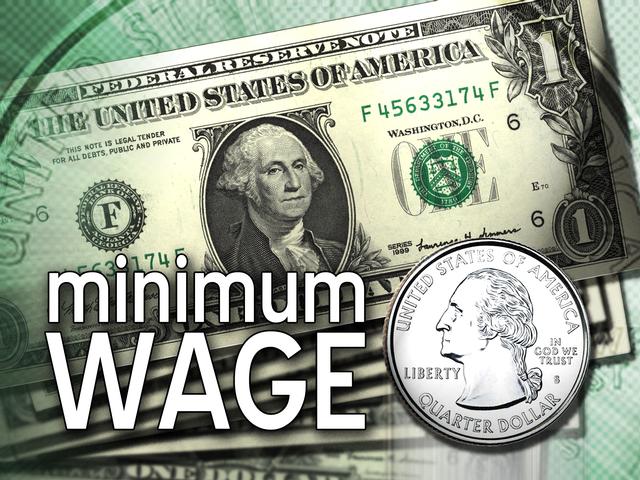Minimum Wage Increases
Students (and adults) earning minimum wage will notice something different in their future paychecks: an additional dollar per hour worked.
New Jersey voters approved an increase in minimum wage this past election day. As of January 2014, minimum wage will increase from its current $7.25 to $8.25 per hour.
The increase does not come without some controversy. Aside from political divisions, economic concerns are at the heart of much of the debate.
Finance teacher Mrs. Stacy Jones explained some of the controversy.
“Minimum wage needed to go up for lower income families,” she said. “However, it could increase prices and affect the middle class, but we needed to help the unfortunate families that live off of minimum wage.”
Many students earn minimum wage because they work part-time, not full-time. Those with those jobs favor this change, as it means their current pay will increase as of January.
“I agree with this change,” stated senior Anthony Cruz. “This will cause more kids to want to work, which can help the employer.”
However, not all students think it’s a good idea.
“Minimum wage should not have increased at this rate,” he explained. “It will force small businesses to increase prices, leading to inflation,” said senior Justin Mortelliti.
There is also a more neutral view on the change.
There is also the question of whether or not about how long this newly approved minimum wage will last or if it should continue to increase to meet the cost of living.
“I think it will increase,” said Jones. “It is just too difficult for lower class families to live off of minimum wage.”
Mortelliti thinks that once the January 2014 increase occurs, it’ll stay put for a while.
“It is not a living wage and is just meant to hold people over until they can get a full-time job,” he added.
New Jersey will officially become the 20th state to establish minimum wage over the federal minimum of $7.25 per hour in January. This means more pay for part-time working students and low class families but could possibly bring about increases in the cost of products and services as employers follow the new legislation.











